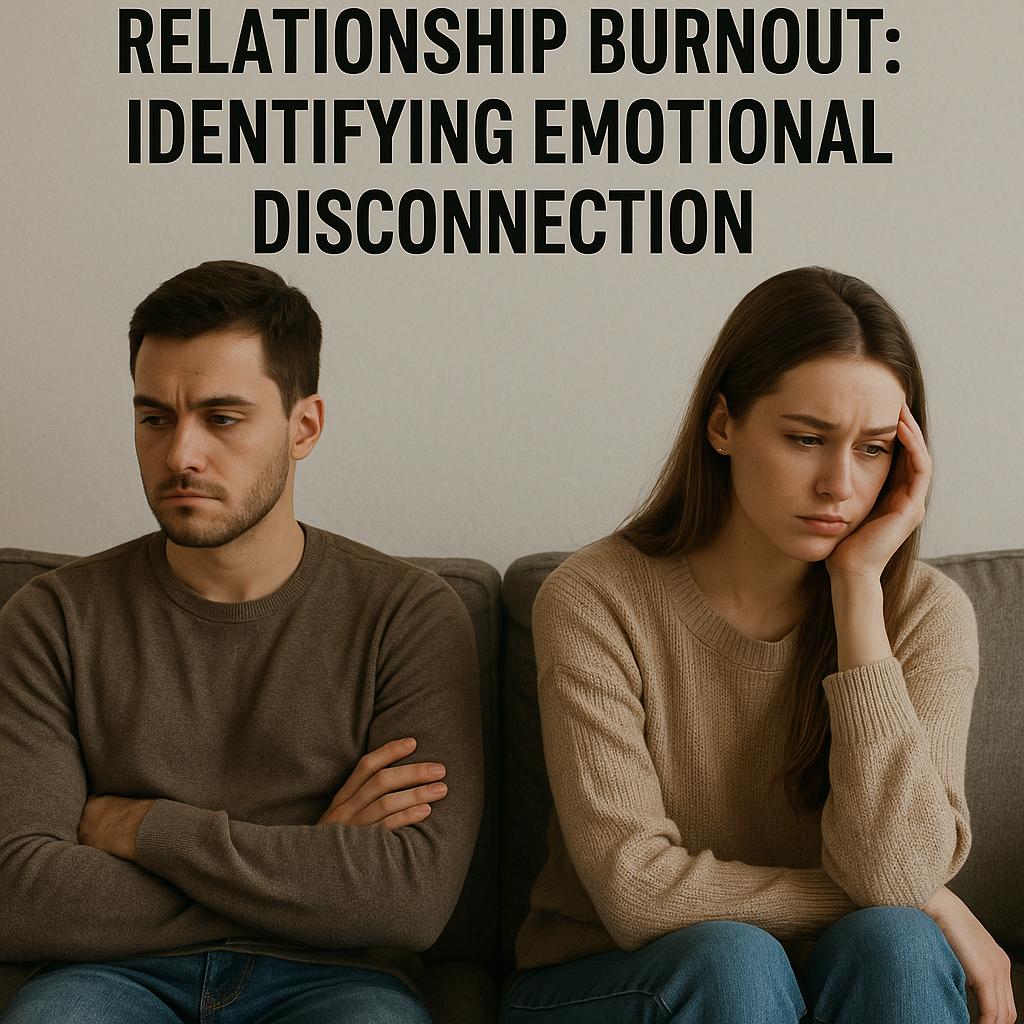Effective Solutions for Common Communication Challenges in Relationships
In any close relationship, communication is the heartbeat that sustains connection. At the beginning, love feels like it can overcome anything. But over time, love doesn’t magically solve all challenges. Instead, it brings our differences and needs into clear view. This article will cover four common couples communication problems and, more importantly, how to address them to build a strong, lasting bond.
Why Communication Is So Important in Relationships
Good communication is often called the foundation of a healthy relationship. But what does that mean practically? For couples, it means that how we communicate can either help us grow closer or create distance. Effective communication can be challenging because it requires honesty, vulnerability, and a genuine desire to understand each other. When communication is clear, both partners feel valued and connected. They don’t avoid hard conversations; instead, they approach them with curiosity and care. [ The Endless Spiral ]
Conversely, when communication falters, it can lead to patterns of blame, frustration, and distance that leave both partners feeling lonely or hurt. Thankfully, communication problems don’t have to be permanent. With patience, understanding, and practical strategies, couples can transform the way they communicate and strengthen their relationship.
The Root Cause of Couples Communication Problems
Despite the common saying, love alone doesn’t conquer all. Each person brings their quirks, past experiences, and unique needs into relationships, which can lead to communication issues. Renowned researcher Dr. John Gottman identified certain toxic communication habits—like criticism and defensiveness—that can destroy trust and intimacy over time. He labeled these behaviors the “Four Horsemen of the Apocalypse,” showing how they can derail a relationship if left unchecked.
These Four Horsemen—criticism, defensiveness, stonewalling, and contempt—serve as warning signs. Noticing them early allows couples to address issues before they become damaging. Let’s dive into each of these communication problems and explore ways to turn them into opportunities for connection.
Problem #1: Criticism
Criticism happens when we express frustration by pointing out our partner’s flaws instead of communicating our feelings or needs. For example, after a long day, coming home to a cluttered house might prompt one of two responses:
- Complaint: “I’m so tired, and it’s tough to come home to a messy space.”
- Criticism: “Do you even care about helping out? You never pick up around here!”
The complaint addresses the situation, while the criticism targets your partner’s character. Criticism feels like an attack, making your partner defensive instead of open to change.
Solution: Use the Gentle Startup
Instead of leading with criticism, try the gentle startup, a strategy that’s honest but kind. Frame your words with three steps: (1) Describe what you notice, (2) share your feelings, and (3) express a need.
For example: “When I see dishes left out, I feel overwhelmed because I need our space to be calm and organized.” This approach communicates your feelings without making your partner feel attacked, making them more likely to respond with empathy and understanding.
Adding more examples like this can help illustrate why the gentle startup works. Imagine you’re feeling hurt because your partner was on their phone during dinner. Instead of saying, “You’re always glued to that screen,” you might try, “When I see you on your phone at dinner, I feel lonely because I’d love to share this time together.”
Poor communication often leads to broken trust—here’s how to rebuild it.
Problem #2: Defensiveness
Defensiveness is a natural response to feeling criticized, but it often blocks genuine communication. It can show up as playing the victim, minimizing the issue, or responding with a “Yeah, but…” which creates distance and frustration.
Imagine the same messy house scenario. A defensive response could sound like: “It’s not that messy. You’re overreacting!” or “You leave things around, too!” This sidesteps the actual problem and leaves your partner feeling unheard and frustrated.
Solution: Take Responsibility
Instead of reacting defensively, try acknowledging your partner’s perspective, even if you don’t fully agree. This doesn’t mean taking all the blame; it just shows that you’re willing to listen and engage with their feelings.
For example: “You’re right, the dishes are still out, and I can see how that would be frustrating. I’ll make sure it’s tidied up tomorrow.” By showing that you’re open to their experience, you help defuse tension and promote a sense of teamwork rather than conflict.
A practical application could look like this: Imagine you forgot an important date night. Instead of saying, “Well, you’ve forgotten things too,” you might try, “You’re right, I let this one slip, and I’m sorry. I know how important it was to you.” This small acknowledgment goes a long way toward healing hurt feelings.
Here is an article on Identifying and Breaking Down Communication Issues
You don’t have to face the challenges in this article alone. A free consultation can start the journey to the tools you need to communicate better, resolve conflicts, and reconnect with your partner.
Problem #3: Stonewalling
Stonewalling occurs when one partner withdraws emotionally or physically during a conversation, often as a way to avoid feeling overwhelmed or “flooded” by emotions. But while stonewalling may seem like a way to keep the peace, it can leave the other partner feeling abandoned and unheard.
Solution: Practice Self-Soothing
If you feel overwhelmed, it’s okay to take a break, but let your partner know it’s temporary. Gottman suggests creating an agreed-upon way to step back when things get too heated. Say, “I need a few minutes to cool down. Let’s pick this up in 20 minutes.” This break isn’t about avoiding the issue; it’s about making sure you return to the conversation feeling calm and open.
During this break, practice self-soothing techniques like deep breathing or taking a short walk. The goal is to come back with a clear mind so you’re ready to listen and discuss constructively.
If taking a break feels difficult, consider setting a timer. Let your partner know, “I’m feeling overwhelmed, so I’ll step outside for 10 minutes to clear my head. Let’s talk then.” This keeps the door open for connection and makes it clear that you’re invested in finding a solution together. [ Healthline ]
Problem #4: Contempt
Contempt is one of the most damaging behaviors in relationships, involving feelings of disgust or superiority toward a partner. It often comes across as sarcasm, eye-rolling, or mocking. Gottman’s research indicates that contempt weakens both partners’ mental and physical health, making it a crucial behavior to address early.
Solution: Build a Culture of Appreciation
The antidote to contempt is appreciation. Try focusing on the small positive actions your partner does each day and make it a habit to express gratitude. This practice can reduce negative feelings and make conflict feel less overwhelming.
For example, you might say, “Thanks for making my favorite meal” or “I appreciate how you always listen when I’ve had a rough day.” These moments of appreciation help build a foundation of respect that makes handling difficult topics easier.
To deepen the culture of appreciation, ask yourself daily, “What did my partner do today that I value?” and make a point of sharing it with them. A simple comment like, “I love how you make me laugh,” can reinforce the positive aspects of your connection.
If you’re married and facing these issues, marriage counseling may offer deeper solutions.
Practical Tips for Better Communication in Relationships
Addressing the Four Horsemen is essential, but building positive habits in your daily life is what sustains change. Here are some specific ways to strengthen communication in your relationship:
- Create Regular Check-Ins: Set aside time each week to talk about your relationship—both the positives and any areas that could use improvement. Think of it as regular maintenance for your connection.
- Listen to Understand: When your partner is talking, focus on understanding them rather than planning your response. Reflective listening, such as summarizing what they’ve said, helps them feel truly heard.
- Use Non-Verbal Connection: Actions like making eye contact, holding hands, or offering a reassuring smile show that you’re present and engaged, reinforcing your bond.
- Incorporate Humor Thoughtfully: Laughter can lighten even tough conversations. If both partners are comfortable, a small joke can reduce tension and remind you that you’re on the same team.
- Seek Professional Support When Needed: Relationship challenges don’t have to be faced alone. Couples therapy can provide a structured space to work through communication struggles with a neutral guide, helping you both feel understood.
Even Individual Counseling can help relationships by facing personal challenges and learning how they interact with others.
[ Healthline ]
FAQs About Couples Communication and Improving Relationship Bonds
- What are some quick tips to improve communication with my partner daily?
To improve daily communication, practice active listening, express appreciation often, and be mindful of body language. Small gestures, like maintaining eye contact or offering a reassuring smile, show that you’re present. Take a few minutes each day to share a positive or grateful thought with your partner. These habits help build a strong foundation of trust and connection.
- How can I bring up communication issues without making my partner defensive?
Starting a conversation about communication can be sensitive. Use “I” statements to express your feelings rather than pointing fingers. For example, “I feel disconnected when we don’t talk about our day” is less likely to trigger defensiveness than “You never talk to me.” Focusing on your experience invites your partner to listen rather than react.
- Can these strategies help if only one partner is actively working on communication?
Yes, these strategies can still make a difference even if only one person is applying them. Positive communication habits, like practicing empathy, using gentle startups, and avoiding criticism, can help shift the relationship dynamic over time, creating a more open environment for your partner to engage.
- When is it time to seek couples therapy for communication problems?
It may be time to seek couples therapy if communication issues feel overwhelming, if both partners frequently feel misunderstood, or if the Four Horsemen behaviors (criticism, defensiveness, stonewalling, and contempt) have become frequent. Therapy offers a neutral space to learn practical tools for improving communication and deepening connection.
Moving Forward Together
Every relationship has ups and downs, but communication is the bridge between closeness and distance. By learning to notice and address these common communication pitfalls—criticism, defensiveness, stonewalling, and contempt—you can steer your relationship toward a deeper, more fulfilling connection.
Effective communication isn’t about avoiding conflict; it’s about building a relationship where both partners feel seen, respected, and valued. When you address issues with openness and kindness, you’re creating a safe space for both of you to thrive. And if you’re ready to take this journey of strengthening communication, counseling can help guide you toward a closer, more connected relationship.
Links and Resources for More Reading
- Why Communication is the Lifeline of Every Relationship
https://www.hercampus.com/school/wilfrid-laurier/the-heartbeat-of-connection-why-is-communication-the-lifeline-in-every-relationship/ - The Heartbeat of a Strong Relationship: The Role of Communication
https://vocal.media/humans/communication-the-heartbeat-of-a-strong-relationship - Unleashing Communication: The Heartbeat of Healthy Relationships
https://theendlessspiral.com/2023/12/07/unleashing-the-power-of-communication-the-heartbeat-of-relationships/







